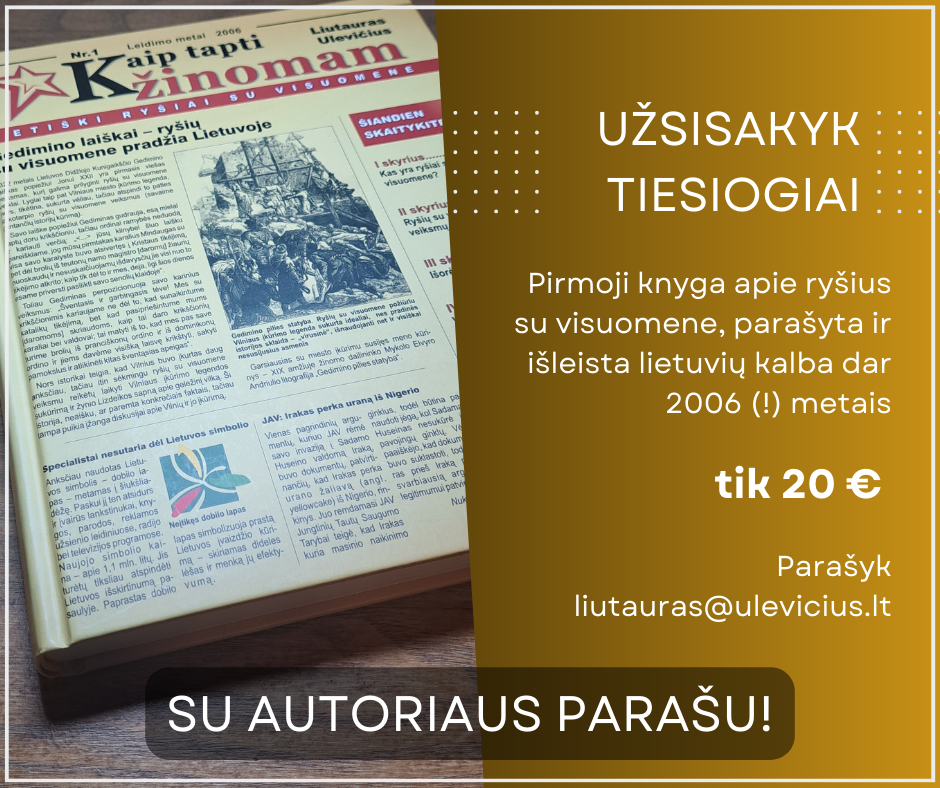Yesterday AFP introduced to the global community my quest for accreditation in our parliament, therefore I feel obligation to explain a few additional issues for guests not reading Lithuanian.
Firstly, the factual background – I've applied for the accreditation in the Parliament of the Republic of Lithuania as a blogger. Yesterday a formal decision to deny access was made simply on the argument, that I have no employment or similar contract with a media channel. Clearly, no blogger has such a contract (except rules of blog-farm provider – the parliament described them as not sufficient “to be valued as a contract”).
Secondly, the main question to be answered is:
If yes – it's ok and all citizens are encouraged to participate and use internet as the medium for communication and information transfer
If no – journalists would become a separate legal category, which would undermine rights of self-expression for every other citizen. From the legal point of view (as I'm a PhD student) such an answer contradicts to US theory of “lonely pamphleter”, but it is unclear, how should it be valued from the perspective of European Convention of Human Rights and its Article 10 (freedom of expression). The legal question is, whereas the status of journalist should depend on formal qualifications (e.g. diploma, employment contract) or real activities (e.g. gathering information and dissemination).
Simple example:
Scenario B (“no”) – a blogger, using internal information, posts a public message, that
employee X from public institution Y is laundering money into his own
pockets. The court does not provide him right not to disclosure the source of
this information, the source is opened for everybody. Blogger is not protected as every journalist. People are
demotivated to openly discuss and write about public problems.



i read your blog, and I send you link from croatian newspapper
http://www.jutarnji.hr//svijet/clanak/art-2007,3,28,litva_blogeri,68233.jl
thank you!
kvailas sprendimas išleisti tokį press anouncement\'ą – ar dėl kažkieno ambicijų tikrai reikia gadinti Lietuvos įvaizdį?
aš maniau kad čia man vienam savęs susireikšminimu smirdi
iš principo nesutinku. geriau atvirai sakyti, kad turim problemą ir ją sprendžiam, nei tyliai kišti galvą į smėlį ir apsimesti, kad kvapo nebuvo..
Vilkošiau, zuokas.lt pavyzdys jau parodė, kad "troleibuse rastą" dokumentą galima skelbti ir internete. klausimas, kaip bus ginamas toks asmuo, yra precedento klausimas. pragyvenčiau aš be tos akreditacijos kaip ir iki šiol, tačiau tokio sprendimo poveikį "į ateitį" būtų, švelniai tariant, žiaurus
Ну и что? Ты не журналист. Представь, что любой человек с улицы захочет наблюдать за заседанием парламента? А если все литовцы захотят это сделать?
Кроме того, закон есть закон, добейся его изменения.
Если все литобцы – это дело техники и правил логистики. Всякие правила нужны и обезятельны, но это ни как ни связанно с принципиалным решением. Угроза, если мы одобрим "НЕТ", гораздо больше по сравнению с угрозои (я бы сказал, что это даже желательно), что люди масой хлынут наблюдать и обсуждать парламентариев.
А закон я буду обсыждать в суде, если понадобится – даже б Страсбуре
palaikau tamsta
sekmes
dėkui!